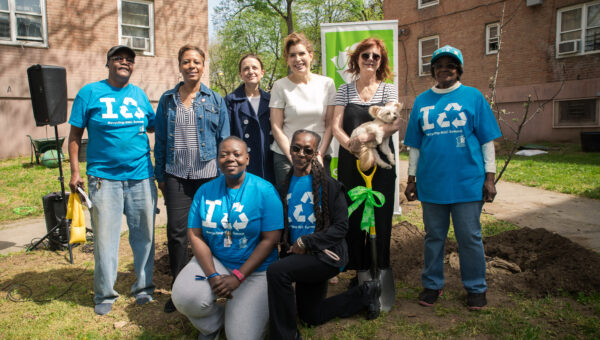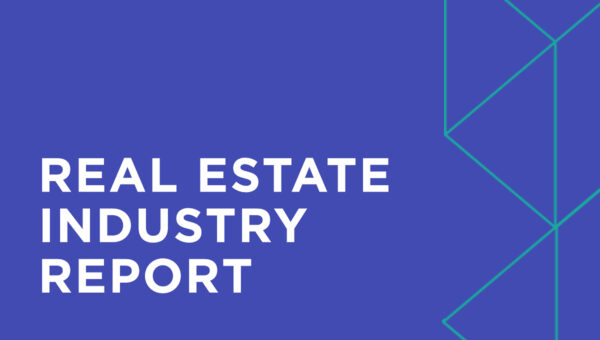
The Benefits of Data Sharing: What Cities and Businesses Are Doing Right

Written by Tom Gray, Senior Vice President, Capalino, and Samantha Sanchez, Capalino
Data sharing is crucial to the operations of any city and town globally. Data sharing is the act of making data available to the public for a wide scope of interest- business, scholarly, or for personal usage. Since 2019, cities have been riding the data sharing wave in new web-based initiatives such as NYC Open Data, to generate more transparency between the city government and residents. Now, everyday people can generate data-driven visualization tools (like charts, maps, graphs, etc.) through thousands of datasets publicly available online. This wasn’t always as advanced as it is now- let’s explore how data sharing has evolved in history.
Blast from the Past
Data sharing existed long before smart phones. In 1899, W.E.B DuBois published The Philadelphia Negro, one of the first prime examples of data-sharing. His map shows the location of all black households that are color-coded based on their social class status derived from his door-to-door survey results in the Seventh Ward of Philadelphia.
DuBois’s map effectively helped people to understand the impact of housing policy in the Seventh Ward. Policymakers began to recognize the limitation of opportunities for individuals by using geospatial visualizations of demographic and economic patterns of the Seventh Ward.
Whether or not DuBois realized it, he planted a seed for data sharing in the 21st century. Nowadays, changemakers throughout the world are taking advantage of open data portals to create maps about social issues that impact their communities to capture attention from their local city representatives. Topics nowadays range from public housing development maps in NYC to USA food deserts, which are possible to create because of open-data portal availability, making data one of the most persuasive tools to generate societal change.

1899-2019
Nowadays, cities strive to use data-driven analysis to make informed decisions. Companies are now hiring more data-analysts to understand the importance of data, how to use it in policymaking and most importantly to appeal to constituents and stakeholders. The ever-changing demographics of a city (especially the Empire State) is what changes the dynamics of the city- it impacts the economy, political and social perspectives of the city. Popular smartphone apps, such as Instagram and Google Maps, are major data collectors that open new data portals. Data sharing is allowing city governments to better understand the tendencies and needs of their population.
USA Data-Driven Cities
City governments throughout the globe are using open-data portals to make “smart decisions” and to engage citizens.
Here are some of the most efficient data-driven cities in the country:
Chicago, Illinois
Data Science for Social Good (DSSG) partnered with the Chicago Department of Public health to collaborate on the creation of predictive statistical models to determine homes that are most risk to lead-paint hazards. There are also fellowships to educate the next generation of data scientists determined to solve social problems.
Philadelphia, Pennsylvania
In 2017, the Philadelphia’s Office of Innovation & Technology began the creation of what is now known as the SmartCityPHL. During community workshops, they began to develop a smart city roadmap to ensure that improved technology and data collection was spread evenly throughout Philadelphia residents. Philly is now the example of how civic engagement and data collection can truly create an emerging smart city.
Columbus, Ohio
Columbia recently launched the Smart Columbus Operating System (SCOS), which is online open data platform that encourages residents to contribute their own datasets to the city government. SCOS will be an information hub that will help contribute to smart city efforts- ranging from improving traffic safety to tracking local food supplies for hungry families.
Boston, Maine
The government in Boston, Maine launched an online open data platform called City Score. City Score is designed to help Boston’s functions work faster and more efficient from data sharing among residents. A major milestone in their program is improving EMS response times and streetlight maintenance to keep streets well-lit and safe.
Topeka, Kansas
Topeka is now an emerging data-driven city leader. The Deputy IT Director of the City of Topeka discovered a lack of data upkeep within the city government from 800 different databases. After receiving a What Works Cities Certification from Bloomberg Philanthropies, she revived Topeka’s data upkeep and sharing system in various city government agencies. By doing this, Topeka has gained a reputation for their transparency around Capital Improvement Projects (CIP) which includes fixing streets and water lines.

3 Businesses Utilizing Data for Good
Businesses are also benefitting from data-sharing, with the intent to give back to the community. Well-known companies are taking the chance to use existing customers’ data to improve their user experience and potentially expand future opportunities for customers.
Here are three businesses that are using data-sharing to make an impact on society:
Yelp
Yelp, the business directory service and customer review forum, used customer data to create the Yelp Local Economic Outlook program. The program tracks economic opportunities and trends throughout the United States. Yelp has generated a list of 50 cities in America that are ranked from most friendly to small business to least. The top 3 cities for small business opportunities are Charlotte, NC; Jacksonville, FL; and Omaha, NE.
LinkedIn, an employment-oriented networking website, launched the Economic Graph Challenge (EGC) in 2016. The EGC uses LinkedIn’s professional networking data to map the global economy. By utilizing customers data (primarily businesses), analysts are now able to look over the different trends such as hiring rates and in-demand skills by each geographic region. LinkedIn can use this data in a multitude of ways, ranging to help better inform businesses and candidates or to generate more specified job opportunities to customers.
PayPal and Kiva
Together, PayPal and Kiva released research on how online lending patterns differ across the US. PayPal, an American company that supports worldwide online payments systems, and Kiva, a non-profit that allows people to lend money virtually to low-income entrepreneurs and students in over 80 countries, have been collecting a data gold-mine for years. As a result of research, the big data analysis can enable lenders to better understand the credit risk of an individual (such as entrepreneurs) based off existing data.
Looking to the Future
Data sharing is at the forefront of the creation and implementation of public policy and businesses. Data collection through civic participation in open data sources allows for cities to have more accurate depictions of the population they serve.
If cities continue in their pursuit of data sharing, they will have a greater likelihood of understanding their community and serving them to their best ability. Businesses can also offer existing data to fill in the missing gaps of information that governments do not have to create well-rounded, informed, and data-driven future decisions.
Capalino works with start-ups, growth stage, and established companies to identify and unlock growth opportunities and navigate the challenges of New York’s complex and rapidly changing business landscape. To learn more, contact Tom Gray at tom@nullcapalino.com or 212.616.5819.


